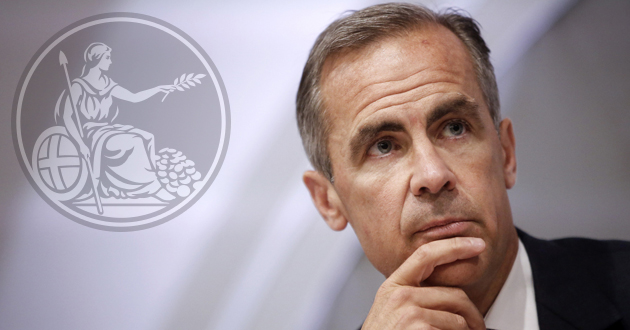According to Bloomberg the Irish-Canadian Governor of the Bank of England (BOE), Mark Carney is onboard with cryptocurrencies. After listening to central bank colleagues and Janet Yellen’s remarks two weeks ago surrounded by members of the Chamber of Digital Commerce, it seems the governor will address the technology at his annual address in London.
Mark Carney has spent a lot of time with a career in central banking even before his BOE position he worked as the Governor of the Bank of Canada. Carney has probably been hearing a whole lot of noise surrounding the financial technology aspects of cryptocurrencies. Before the U.K.’s referendum, Carney will address cyber security and new concepts concerning monetary policy according to sources. Daniel Marovitz of the London-based firm Earthport tells Bloomberg:
“The central bank adoption of a crypto version of a fiat currency would be a game changer. The move would show the technology can work in the real world and not just the laboratory.”
The speech will address many attendees in the financial sector of London with his keynote speech. Many investors and central bankers are currently concerned with the upcoming Brexit debate and subsequent vote on June 23. Bloomberg also reveals the Chancellor of the Exchequer, George Osborne, will also be in attendance. This news also comes after BOE Deputy Governor Ben Broadbent explained his position concerning digital currencies and blockchain technology this past March. Broadbent seems pretty confident about the technology but also alludes in his speech that there’s a lot of legwork to be done. In his written report Broadbent says:
“In principle, this technology could be applied to many things, not just the exchange and registering of financial assets. A recent official report in the UK suggested that distributed ledgers might eventually be used for a wide variety of government services, including the collection of taxes, the delivery of benefits – potentially including new “smart” transfers that could target particular groups – the keeping of business registers and other things besides. If so, then there may be similar potential uses in the non-financial private sector.”
However, Broadbent explains he understands why these technologies have come to fruition but states, “It remains to be seen whether these ventures prove successful.” Despite this uncertain future, blockchain and digital asset advocates at the Federal Reserve two weeks ago told central bankers they shouldn’t miss out on the future. Adam Ludwin, CEO of Chain told 90 central bankers, “As potential operators of networks for issuing central bank digital currencies, policy makers have the opportunity to forge a payments system that will enhance security, reduce settlement times and create new possibilities for monetary policy,”
Central Banks seem to be very interested in this emerging technology and its applications to fix the economy’s financial woes. A central established digital currency most likely won’t go over very well with ordinary citizens as they have been tired of the central banking failed policies. Most Austrian School economists would agree, Keynesian economic decisions such as quantitative easing, fractional reserve banking, and the constant un-audited mass printing of fiat currency has caused substantial economic hardships. In fact, most of them including cryptocurrency supporters believe central banks are the very roots of the problem.
Source: Bloomberg
Images via Pixabay
